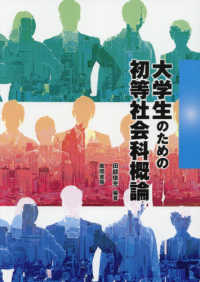Full Description
In Land of Famished Beings, Sophie Chao examines how Indigenous Marind communities understand and theorize hunger in lowland West Papua, a place where industrial plantation expansion and settler-colonial violence are radically reconfiguring ecologies, socialities, and identities. Instead of seeing hunger as an individual, biophysical state defined purely in nutritional, quantitative, or human terms, Chao investigates how hunger traverses variably situated humans, animals, plants, institutions, infrastructures, spirits, and sorcerers. When approached through the lens of Indigenous Marind philosophies, practices, and protocols, hunger reveals itself a multiple, more-than-human, and morally imbued modality of being—one whose effects are no less culturally crafted or contested than food and eating. In centering Indigenous feminist theories of hunger, Chao offers new ways of thinking about the relationship between the environment, food, and nourishment in an age of self-consuming capitalist growth. She also considers how Indigenous theories invite anthropologists to reimagine the ethics and politics of ethnographic writing and the responsibilities, hesitations, and compromises that shape anthropological commitments in and beyond the field.
Contents
Note on Language, Nomenclature, and Images ix
Acknowledgments xi
Introduction 1
1. Satiation and Hunger in the Forest 25
2. Hungers That Never Go Away 54
3. Of Roads and Other Hungry Beings 86
4. Making Sense of Hunger 112
5. Writing Hunger 136
Conclusion 165
Coda 175
Notes 177
Bibliography 211
Index 245






